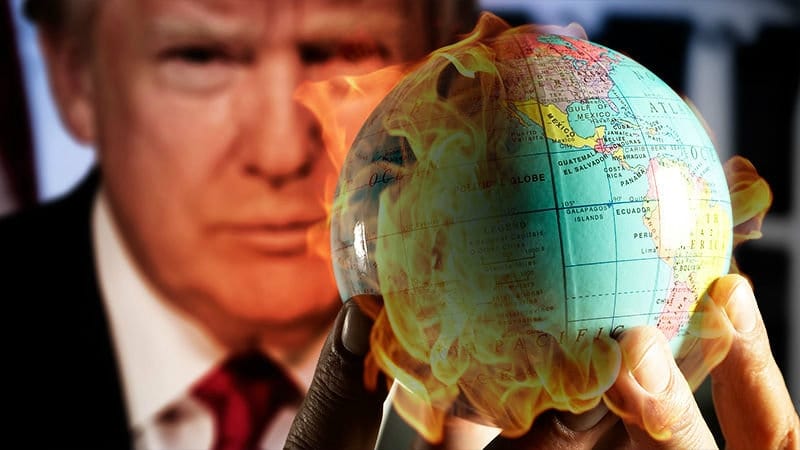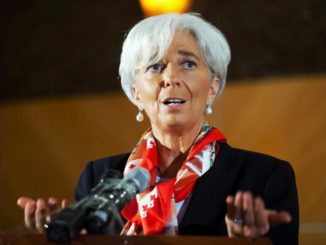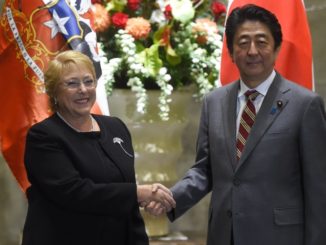
SAM BEN-MEIR
NEW YORK – In its attack on the very foundations of science, Trumpism constitutes an epistemic disaster: we are facing a crisis in terms of knowledge and objective inquiry.
Epistemology (or the theory of knowledge) is concerned with, among other things, what right we have to the beliefs we hold – in other words, it is a normative enterprise: it asks not merely the descriptive-psychological question of how people happen to come to acquire their beliefs, but rather how they should do so. When the disinterested pursuit of knowledge is in effect denied and dismissed by our nation’s most powerful office, then it seems accurate to say that we are indeed facing a crisis of knowledge and science: an attack upon the very foundation of civil discourse.
On January 20th — the very moment Trump took office — all White House websites were scrubbed of information regarding climate change. The only mention was the following: “President Trump is committed to eliminating harmful and unnecessary policies such as the Climate Action Plan.” In March, Scott Pruitt, Trump’s appointed director of the Environmental Protection Agency (EPA), argued on CNBC that “human activity [is not the] primary contributor to the global warming that we see.”
In recent months, this illusion has led to further censorship of official websites, in which historical and factual information related to climate change has been removed. These changes are designed to deliberately politicize the most pressing crisis facing the U.S. and the world; by divesting the EPA of its regulatory functions these changes serve only to promote corporate interests.
The decision to pull out of the Paris Climate Agreement was short-sighted and reckless; driven not by an honest assessment of the consequences of climate change, but instead by both a blind desire to undo Obama’s legacy wherever possible, as well as a hunger for short-term profits at the expense of geopolitical, social, and economic structures. The reality of anthropogenic climate change is no longer an object of serious scientific contention.
The International Panel on Climate Change (IPCC) 2013 Summary for Policymakers states, “Human influence in the climate system is clear…” as evidences in the “…warming of the atmosphere and ocean, in changes in the global water cycle, in reductions in snow and ice, in global mean sea level rise, and in changes in some climate extremes.” The refusal to acknowledge human-caused climate change is a denial in the face of overwhelming evidence.
Trump’s readiness to allow himself to hold beliefs that are motivated solely by self-interest and his complete disregard for the weight of evidence reflects not only an epistemic failure, but also a moral one. The philosopher William Clifford argued that to believe anything, anywhere, at any time on insufficient evidence is a moral wrong. With its basic assumption that knowledge is reducible to perception, Trumpism has created conditions in which our elected administration feels entitled to edit away inconvenient facts.
In its defunding of climate change research (on May 5th, Congress ratified a federal budget that reduces EPA-funding for Earth science university research grants) and its flagrant redaction of climate change data and references from White House and EPA websites, the administration is acting in ways that willfully ignore a reality which is already upon us.
The scientific has predicted that we may be entering into the sixth mass extinction in the history of Earth – an event that will trigger a loss of biodiversity of unspeakable proportions. According to the Millennium Ecosystem Assessment, “By the end of the century, climate change and its impacts may be the dominant direct driver of biodiversity loss and changes in ecosystem services globally.”
As biodiversity decreases there will undoubtedly be alarming consequences. This includes disruptions in the food chains – for example, changes in the insect species will decrease plant pollination. Further, the diminished plant diversity will impact our ability to produce essential medications to care for our aging population. Finally, naturally occurring biodiversity protects our planet from natural disasters, without which, our forests and coastlines more vulnerable than ever.
As Theodore Roosevelt observed, “the loss is like the loss of a gallery of the masterpieces of the artists of old time.” The diversity and richness of life forms have value in themselves, as organs created by Nature to perceive Nature. With the extinction of a species the world itself has diminished in richness – for not only is it no longer perceived or approached in the way specific to the form of life, but the very interiority of Nature, we might say, has been reduced.
The administration’s response to what is currently happening is a moral outrage – and it was made possible by a readiness to forsake our epistemic duty to follow where the evidence leads. We are in the midst of a moral and epistemic crisis: this administration has to be held fully accountable for its foolish decision to ignore the reality and mock the scientific consensus.
Trump disgraces this nation everyday with his rejection of basic decency, his gross and palpable lying, his use of cruelty and humiliation in place of rational argumentation. In attacking the media and the freedom of the press, he disgraces his office: using it only to aggrandize himself and punish those with whom his personal interests conflict. But history may yet determine that his greatest disgrace was to willfully and gratuitously ignore the reality of anthropogenic climate change when the time to act was at its most critical.
Sam Ben-Meir, PhD is an adjunct professor at Mercy College. His current research focuses on environmental ethics and animal studies. He can be reached at sam@alonben-meir.com.



